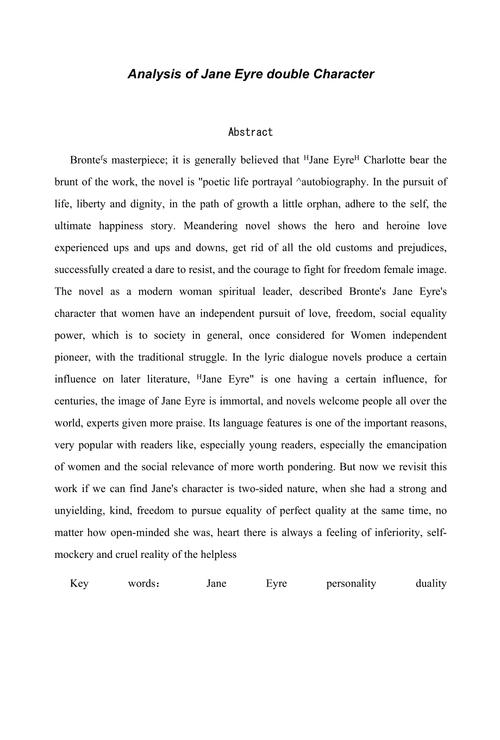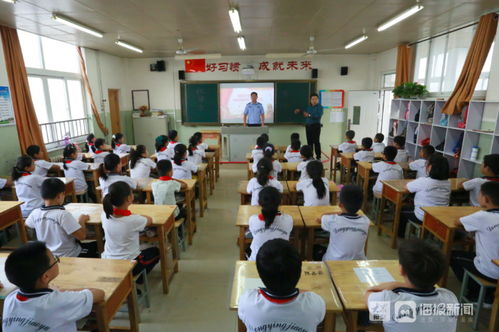您所在的位置:首页 - 经验 - 正文经验
高中英语老师论文发表期刊
![]() 配渊
2024-05-20
【经验】
875人已围观
配渊
2024-05-20
【经验】
875人已围观
摘要**Title:CraftingLiteraryEssays:InsightsforEnglishTeachers**---**Introduction**IntherealmofEnglishedu
Title: Crafting Literary Essays: Insights for English Teachers
Introduction

In the realm of English education, the art of crafting literary essays holds paramount importance. As English teachers endeavor to nurture critical thinking and analytical skills among students, guiding them through the intricate process of composing literaturebased papers becomes indispensable. This discourse aims to furnish English educators with comprehensive insights into formulating scholarly essays within the domain of literature, encompassing topic selection, thesis development, textual analysis, and effective writing strategies.
1. Topic Selection: Nurturing Curiosity
The foundation of a compelling literary essay rests upon an intriguing topic that ignites curiosity and fosters intellectual engagement. English teachers should encourage students to explore a diverse array of themes, characters, and literary devices within the assigned texts. Facilitating brainstorming sessions and providing ample resources can empower students to discover unique perspectives and thematic elements worthy of investigation. Moreover, emphasizing the significance of relevance and personal interest in topic selection cultivates a genuine enthusiasm for delving into the intricacies of literature.
2. Thesis Development: Precision and Clarity
The thesis statement serves as the fulcrum around which a literary essay revolves, encapsulating the central argument or interpretation proposed by the writer. English teachers play a pivotal role in guiding students towards formulating concise, precise, and arguable theses that encapsulate the essence of their analysis. Encouraging students to refine their theses through peer feedback and revision processes fosters a deeper understanding of textual nuances and analytical rigor. Furthermore, elucidating the distinction between plot summary and critical analysis reinforces the imperative of crafting thesis statements that transcend mere paraphrasing, thereby elevating the intellectual caliber of literary essays.
3. Textual Analysis: Unveiling Layers of Meaning
Effective textual analysis constitutes the crux of a scholarly literary essay, necessitating a meticulous examination of narrative techniques, character development, symbolism, and thematic elements. English teachers should instill in students the art of close reading, wherein they scrutinize passages attentively, discerning subtle nuances and underlying motifs. Encouraging students to annotate texts, pose probing questions, and engage in Socratic discussions fosters a deeper appreciation for the complexities inherent in literary works. Furthermore, scaffolding analytical skills through gradual progression from surfacelevel observations to nuanced interpretations empowers students to unravel layers of meaning embedded within the text.
4. Writing Strategies: Cultivating Eloquence
The efficacy of a literary essay hinges upon the writer's capacity to articulate insights cogently and eloquently. English teachers must impart students with writing strategies that enhance coherence, cohesion, and stylistic finesse. Emphasizing the importance of structured outlines, logical transitions, and varied sentence structures equips students with the tools necessary for crafting articulate and persuasive arguments. Additionally, fostering a culture of revision and peer collaboration cultivates a commitment to refining writing proficiency and honing rhetorical prowess. By nurturing students' ability to express their ideas with clarity and sophistication, English teachers empower them to wield language as a potent instrument of scholarly discourse.
Conclusion
In the realm of English education, the cultivation of literary essay writing skills constitutes a linchpin in fostering critical thinking, analytical acumen, and rhetorical finesse among students. By adeptly guiding students through the iterative process of topic selection, thesis development, textual analysis, and writing refinement, English teachers imbue them with the requisite competencies to navigate the intricate terrain of literary scholarship. Thus, armed with a repertoire of pedagogical insights and instructional strategies, English educators are poised to nurture a generation of adept scholars and impassioned bibliophiles, poised to embark on a lifelong journey of literary discovery and intellectual inquiry.
This comprehensive guide aims to equip English teachers with the requisite pedagogical insights and instructional strategies necessary for fostering the development of adept scholars and impassioned bibliophiles within the realm of literary scholarship. Through adeptly guiding students through the iterative process of topic selection, thesis development, textual analysis, and writing refinement, educators can empower students to navigate the intricate terrain of literary discourse with confidence and acumen.
版权声明: 免责声明:本网站部分内容由用户自行上传,若侵犯了您的权益,请联系我们处理,谢谢!联系QQ:2760375052
上一篇: 南阳可以加盟的辅导机构
下一篇: 文学和历史学的区别
最近发表
- 缅甸多名华人护照被埋,大使馆的回应与我们的思考
- 健身路上的隐形杀手,类固醇增肌的代价
- 柯淳短剧播放量震惊全场,揭秘背后的成功秘诀与未来展望
- 联合国秘书长拒绝了普京的提议,国际合作的挑战与机遇
- 上千位歌迷在场外听刀郎演唱会,音乐无界,情感共鸣的见证
- 张本智和发文祝贺妹妹夺冠,兄妹携手共赴乒乓荣耀之路
- 云南曲靖市会泽县发生4.4级地震,地震应急与科普知识解析
- 拯救山火,韩国消防员盒饭中的米饭与泡菜
- 传奇歌手李国祥离世,音乐界的巨大损失
- 黄金价格的终极目标,探索财富与安全的黄金之路
- 喻恩泰,用眼技征服观众,引发热议的幕后故事
- 中缅合作修复的最高佛塔安然无恙
- 失踪的清华毕业生,罗生门背后的真相
- 救人溺亡外卖员父母70岁,孩子13岁,家庭的无尽哀歌
- 王宝强这段不像演的,从草根到巨星的蜕变之路
- 开放政策为全球经济注入稳定力量
- 防水冲锋衣会致女性不孕?假!
- 蒙牛净利润暴跌98%,挑战与变革之路
- 用户吐槽小米试驾服务,雷军秒道歉,一场危机公关的教科书式操作
- 女孩子名字大全
- 可折叠电动垂直起降飞行器亮相广州,未来出行的革命
- 连接梦想与现实的桥梁
- 商业健康保险药品,倾听业内声音,共筑健康未来
- 温柔的名字
- 50岁陈德容,优雅回应浪姐争议,展现成熟女性的魅力与智慧
- 为您的钱找到合适的安全港
- 甲亢哥学功夫被一棍打出痛苦面具,一场意外的启示
- 你的生活助手——海尔空调遥控器
- 董宇辉报平安,传递正能量,共筑信心桥梁
- 如何挑选适合女孩的英语名字——灵感与选择策略
- 王者荣耀崩了,一场虚拟世界的地震
- 如何为您的咖啡厅取一个吸引人的名字
- 王俊凯这旗一定是非拿不可吗?
- 证监会对浙商证券采取责令改正措施,深度解析与启示
- 阳光保险董事长张维功,构建稳健发展的阳光模式
- 黎巴嫩首都的巨响,一场意外的震撼与反思
- 给宝宝起名的艺术——如何选择最佳的名字
- 美联储再次面临痛苦抉择,如何平衡经济复苏与通胀风险?
- 上海单独二胎新规,如何让家庭更加幸福?
- 王者荣耀回应崩了,一场游戏背后的技术挑战与应对
- 苏宁易购2024全年盈利同比增114.93%,重塑零售格局,引领电商新纪元
- 提升家庭网络体验的魔法——轻松搞定路由器设置,让网速飞起来!
- 东旭集团证券违法拟被罚17亿元,深度解析与启示
- 如何优雅地从保护模式中醒来——手机安全模式解除指南
- 编程世界的魔法之光
- 二手平台现露营装备低价甩卖,是捡漏还是陷阱?
- 让梦想不再遥不可及
- 教师临近退休却遭解聘,教育公平与职业尊严的拷问
- 漂流男孩事件系摆拍?多方回应
- 给女孩起名的艺术,如何用名字塑造未来



